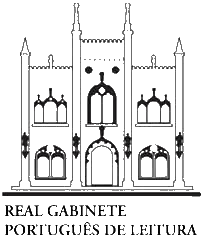The marginalization process of António Botto: poetry, homoeroticism, and critical hostility
DOI:
https://doi.org/10.37508/rcl.2025.n54a1374Keywords:
António Botto, Portuguese poetry, Literary criticismo, HomoeroticismAbstract
This article examines the career of poet António Botto and the ways in which he was constantly forced to respond to a literary field that sought to disqualify his poetic project, primarily due to the homoerotic content of his work. Since the Literatura de Sodoma controversies of the early 1920s, Botto endured the consequences of the homophobic and heterosexist discourses that shaped the Portuguese cultural landscape in the first half of the 20th century. Although the controversy itself was seemingly short-lived, lasting only a few months between 1922 and 1923, the poet faced ongoing reprisals that echoed its effects, even if indirectly. To this end, this study analyzes a selection of prose and verse texts that reflect Botto’s resistance to hostile critiques of his poetry, from the 1920s to the period of his exile in Brazil, when traces of critical opposition to his work could still be observed.
Downloads
References
A TRAGÉDIA temporária do poeta António Botto. Repórter X, Lisboa, n. 2, 26 out. 1929, p. 1 e 3.
AINDA o Boto. Gazeta de Notícias, Rio de Janeiro, ano 72, n. 281, p. 3, 29 nov. 1947.
BARROSO, Carlos Alvim. A mágoa do poeta. A Noite, ano XXXVII, n. 12.662, Rio de Janeiro, p. 3, 5 set. 1947.
BOTTO, António. Canções. Lisboa: Guimarães, 2010.
BOTTO, António. Espólio. E12. Biblioteca Nacional de Portugal, Arquivo de Cultura Portuguesa Contemporânea, Fundo António Botto, Lisboa.
BOTTO, António. O livro do povo. Lisboa: Eclética, 1944.
BOTTO, António. Palavras de um avestruz todo gris. Contemporânea, Lisboa, n. 6, p. 112, dez. 1922.
BOTTO, António. Poesia. Lisboa: Assírio & Alvim, 2018.
CARVALHO, Abílio de. Antônio Boto desmascara os seus caluniadores. Gazeta de Notícias, Rio de Janeiro, ano 78, n. 126, p. 12, 4 jun. 1953.
CARVALHO, Amorim. Através da obra do Sr. António Botto. Porto: Livraria Simões Lopes, 1938.
CASCAIS, António Fernando. O manifesto dele a toda a gente. Via Atlântica, São Paulo, v. 24, n. 2, p. 14-40, 2023. DOI: 10.11606/va.i2.209169. Disponível em: https://revistas.usp.br/viaatlantica/article/view/209169. Acesso em: 15 jan. 2025. DOI: https://doi.org/10.11606/va.i2.209169
CUROPOS, Fernando. António Botto e Fernando Pessoa nas ruas de trás. In: RIBEIRO, Nuno; BASTOS, Margarida Almeida (org.). António Botto e Fernando Pessoa: poéticas em diálogo. Lisboa: Biblioteca Nacional de Portugal, 2021. p. 27-46.
DEZ minutos com António Botto. Diário de Lisboa, Lisboa, p. 5, 22 mar. 1935. (Suplemento Literário).
FOUCAULT, Michel. História da sexualidade I: a vontade de saber. São Paulo: Paz & Terra, 2014.
GONÇALVES, Zetho Cunha. Notícia do maior escândalo erótico-social do século XX em Portugal. Lisboa: Letra Livre, 2014.
KLOBUCKA, Anna. O mundo gay de António Botto. Lisboa: Documenta, 2018.
LEAL, Raul; SENA, Jorge de. Correspondência 1955-1960. Lisboa: Guerra e Paz Editores, 2010.
O BOTO. Gazeta de Notícias, Rio de Janeiro, ano 72, n. 203, p. 3, 30 ago. 1947.
PANSY. In: CAMBRIDGE Dictionary, Cambridge, c2025. Disponível em: https://dictionary.cambridge.org/us/dictionary/english/pansy. Acesso em: 15 nov. 2024.
PARECER. Diário do Governo, Lisboa, n. 262, p. 5794-5796, 8 nov. 1942. PESSOA, Fernando. António Botto e o ideal estético em Portugal.
Contemporânea, Lisboa, n. 3, p. 121-126, jul. 1922. DOI: https://doi.org/10.1038/scientificamerican0222-121
TREVISAN, Dalton. A Mameluca. Joaquim, Curitiba, n. 15, p. 5, 1947.
UMA PÁGINA breve das minhas memórias. Diário de Lisboa, Lisboa, p. 1, 12 ago. 1938. (Suplemento Literário).
WILDE de fancaria. Jornal de Notícias, São Paulo, ano II, n. 416, p. 2, 30 ago. 1947.
Downloads
Published
How to Cite
Issue
Section
License
Copyright (c) 2025 Oscar José de Paula Neto

This work is licensed under a Creative Commons Attribution-NonCommercial 4.0 International License.
Authors who publish in Convergência Lusíada agree with the following terms:
- Authors retain copyright and grant the journal right of first publication with the work simultaneously licensed under a Creative Commons Attribution-NonCommercial 4.0 International License (CC-BY-NC 4.0) that allows others to share the work with an acknowledgment of the work's authorship and initial publication in this journal.
- Authors may enter into separate, additional contractual arrangements for the non-exclusive distribution of the journal’s published version of the work (e.g., post it to an institutional repository or publish it in a book), with an acknowledgment of its initial publication in this journal.
- Authors are permitted and encouraged to post their work online (e.g., in institutional repositories or on their website) prior to and during the submission process, as it can lead to productive exchanges, as well as earlier and greater citation of published work.

Revista Convergência Lusíada is licensed under a Creative Commons - Atribuição-NãoComercial 4.0 Internacional.









